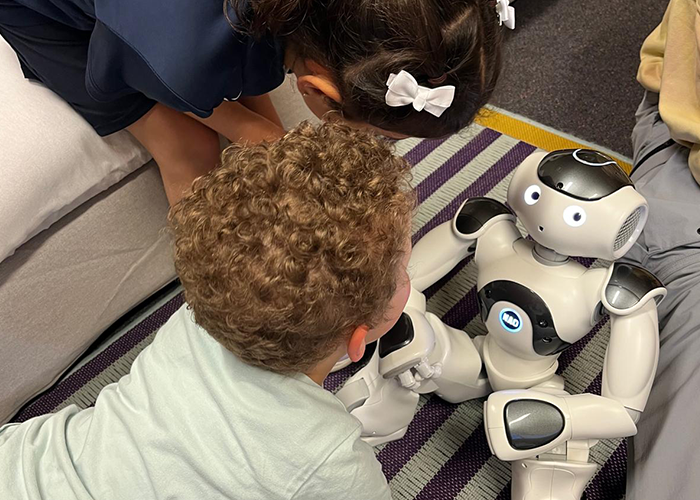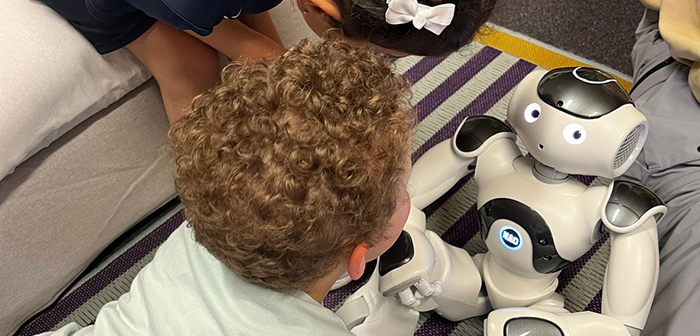
Can social robots help children learn to read? New research from Flinders University suggests they can, offering encouragement, emotional support and personalised assistance that may be especially valuable for young learners who are struggling.
The study, led by Associate Professor Nathan Caruana from the Flinders Institute for Mental Health and Wellbeing in partnership with researchers in Switzerland and Australia, explored how 35 children aged 5 to 9 interacted with robot reading companions. Five of the children had identified reading difficulties, while the remaining 30 had typical reading skills. Across the group, the children responded positively to the robots, describing them as helpful, confidence-boosting and supportive.
Associate Professor Caruana said the findings underline the potential benefits of tailoring robot assistants to children’s individual needs, particularly for those who experience reading challenges or anxiety. The children were invited to sketch and describe their ideal robot reading helper, leading to designs that combined academic assistance with emotional reassurance. Many envisioned robots that could smile, converse and play, while possessing broad knowledge across reading, maths and general topics. Their preferred designs were colourful, compact and customisable.
The research was conducted by the Human, Artificial & Virtual Interactive Cognition Lab (HAVIC Lab) at Flinders University, working with the Social Brain Sciences Lab at ETH Zurich and Macquarie University’s School of Psychological Sciences. The team argues that understanding how children perceive and accept robotic helpers is essential for designing effective tools for educational environments.
Associate Professor Caruana said the results show children are open to interacting with robot companions during reading activities, provided the technology is carefully and collaboratively designed. Codesign, he emphasised, is crucial for ensuring robots are intuitive, safe and truly supportive in learning contexts.
The HAVIC Lab is already undertaking several applied studies with industry partners to explore how humans engage with social robots in classrooms, workshops and other real-world settings. The lab is also connected to the Flinders Factory of the Future and is a founding partner of the Flinders Autism Research Initiative.
The full research paper, Children with and without reading difficulty value robot reading companions that are smart, supportive, and personalised, appears in Scientific Reports (DOI: 10.1038/s41598-025-15341-w).





